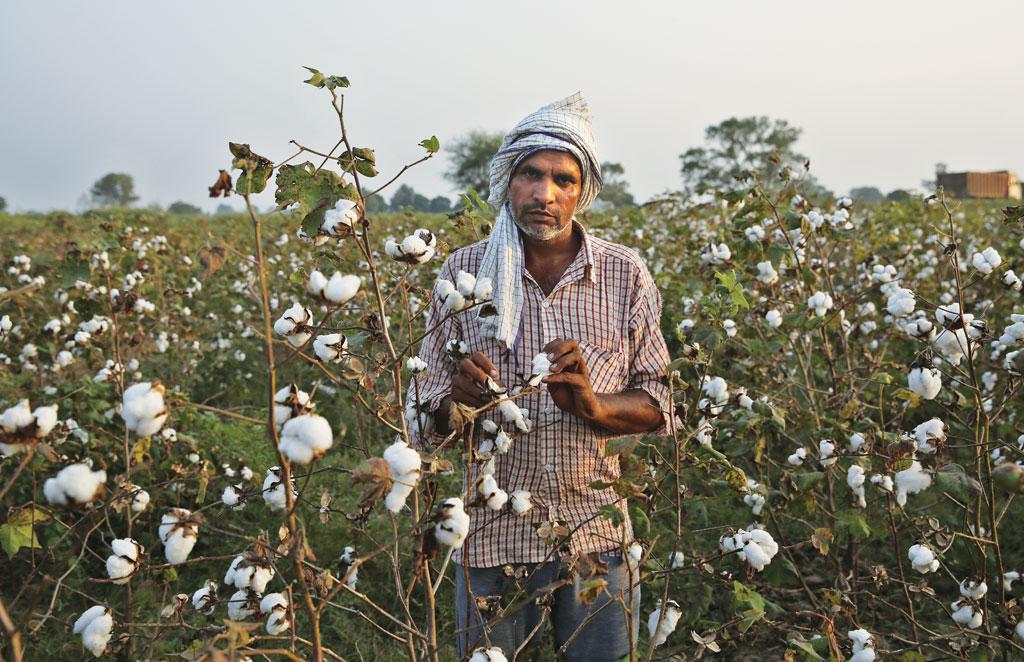WHY ORGANIC?

BEETxBEET is joining the global movement for #FashionRevolution week. We are proud to be launching a brand new capsule collection locally made in Los Angeles using 100% GOTS certified organic cotton, low-impact dyes and eco-friendly vegan inks.
This has been a goal of mine for a long time coming. I am so pumped to share with you our new organic collection launching April 23rd but first I wanted to give you some information around why it’s important to support organic cotton.
Let’s get the bad news out of the way first.
Chemical residues from conventional cotton are left on clothes and then absorbed into our skin which is the largest organ on our body. It’s very similar to buying food at the grocery store. You might want to ask yourself, are you an organic or conventional shopper? The same applies to clothing.
Conventionally-grown cotton occupies only 3% of the world's farmland, but uses 25% of the world's chemical pesticides. The EPA considers 7 of the top 15 pesticides used on cotton as "likely" or "known" human carcinogens. Pretty shocking stuff! Over 90% of the cotton grown in the U.S. is genetically engineered, spliced with the Bt toxin and modified to survive the spraying of large quantities of the controversial herbicide, Roundup from the company we love to hate - Monsanto
Sprayed from the air or by hand using pumps, these highly toxic chemicals can drift into surrounding neighborhoods, poison farm workers, contaminate air, ground and surface water and cause major eco-system imbalances. Um, No thanks.
Millions of cotton farmers and garment workers in the developing world are exploited in the global marketplace. India is a large supplier of cotton and also where Monsanto has set up shop for six decades taking control of the seed industry. They have been accused for a long time of overcharging farmers for GMO seeds which claim to be pest resistant but that effect actually diminishes with time. The seeds are only usable once and then you have to buy again for the next year. The high price of seeds and royalties paid to Monsanto left thousands of farmers in a vicious cycle of debt. This sadly led to many farmers suicides when the crops failed.
 (Photo: Vikas Choudhary)
(Photo: Vikas Choudhary)
As a result, in 2006 the government was forced to start regulating Bt cotton prices. A recent court ruling is now putting a halt against the big ag giant deciding that they can not own a patent over genetically modified cotton seeds in India.
So, to recap the bad stuff:
Bad for farmers, garment workers, your health and the environment.
Now that you are totally bummed out let’s get to the positive vibes!
#ORGANIC MATTERS

Organic cotton uses up to 95% less water than conventional cotton during the wash phase and doesn’t contain the harsh chemicals, bleaches or dyes that conventional cotton uses. Nice!
Organic cotton represents a return to safe and sustainable practices while being environmentally and socially responsible. It is grown with natural fertilizers and is free from toxic chemicals. Organic farmers rely on crop rotation to replenish and maintain soil fertility. Mechanical cultivation and botanical or biological means are used to control pests and weeds.
A field must be pesticide-free for at least three years to be certified organic, and the cotton must be processed according to international organic standards. We respect and value the rights of workers and believe in the right to fair and safe workplace conditions that’s why we chose Groceries Apparel to supply us with high quality garments.

We believe the consumer has the right to know what their purchase is supporting. GROCERIES supports family farms, localized manufacturing, living wages, and Monsanto-free, organic ingredients. Its operations empower human beings through fair-trade, fair conditions and fair treatment across its entire supply chain and provide full traceability to its customers. GROCERIES operates its own factory in Los Angeles, CA to ensure that they are able to follow through with their claims.
To recap the good stuff:
Organic cotton is better for your health, farmers, garment workers and the environment.
While we currently do not have the ability to make our entire line organic at this time we are making steps towards creating a better brand overall and doing what we can to make a difference in the industry. We hope you will join us in support of this new collection and sustainable movement.
Love & Beets
. . . . .
Sources:
https://www.haenow.com/cart/whyorganic.php
http://www.downtoearth.org.in/news/vidarbha-s-toxic-trail-59173


